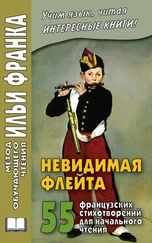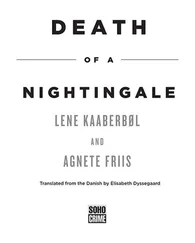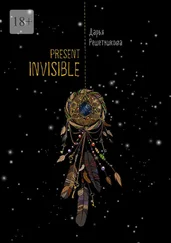Lene Kaaberbol - Invisible Murder
Здесь есть возможность читать онлайн «Lene Kaaberbol - Invisible Murder» весь текст электронной книги совершенно бесплатно (целиком полную версию без сокращений). В некоторых случаях можно слушать аудио, скачать через торрент в формате fb2 и присутствует краткое содержание. Год выпуска: 2012, ISBN: 2012, Издательство: Soho Crime, Жанр: Старинная литература, на английском языке. Описание произведения, (предисловие) а так же отзывы посетителей доступны на портале библиотеки ЛибКат.
- Название:Invisible Murder
- Автор:
- Издательство:Soho Crime
- Жанр:
- Год:2012
- ISBN:9781616951719
- Рейтинг книги:5 / 5. Голосов: 1
-
Избранное:Добавить в избранное
- Отзывы:
-
Ваша оценка:
- 100
- 1
- 2
- 3
- 4
- 5
Invisible Murder: краткое содержание, описание и аннотация
Предлагаем к чтению аннотацию, описание, краткое содержание или предисловие (зависит от того, что написал сам автор книги «Invisible Murder»). Если вы не нашли необходимую информацию о книге — напишите в комментариях, мы постараемся отыскать её.
Invisible Murder — читать онлайн бесплатно полную книгу (весь текст) целиком
Ниже представлен текст книги, разбитый по страницам. Система сохранения места последней прочитанной страницы, позволяет с удобством читать онлайн бесплатно книгу «Invisible Murder», без необходимости каждый раз заново искать на чём Вы остановились. Поставьте закладку, и сможете в любой момент перейти на страницу, на которой закончили чтение.
Интервал:
Закладка:
Also by Lene Kaaberbøl and Agnete Friis
The Boy in the Suitcase

Copyright © 2010 by Lene Kaaberbøl and Agnete Friis
English translation copyright © 2012 by Tara Chace
Published by
Soho Press, Inc.
853 Broadway
New York, NY 10003
Library of Congress Cataloging-in-Publication Data
Kaaberbøl, Lene.
[Stille umrkeligt drab. English]
Invisible murder / Lene Kaaberbol and Agnete Friis; translated
from the Danish by Tara Chace.
p. cm.
eISBN: 978-1-61695-171-9
1. Nurses—Denmark—Fiction. 2. Crime—Denmark—Fiction. I. Friis,
Agnete. II. Chace, Tara. III. Title.
PT8177.21.A24S7513 2012
839.81’38—dc23
2012028793
v3.1
Contents
Cover
Other Books by These Authors
Title Page
Copyright
Prologue: Northern Hungary
April
Chapter 1
Chapter 2
Chapter 3
May
Chapter 4
Chapter 5
Chapter 6
Chapter 7
Chapter 8
Chapter 9
Chapter 10
Chapter 11
Chapter 12
Chapter 13
Chapter 14
Chapter 15
Chapter 16
Chapter 17
Chapter 18
Chapter 19
Chapter 20
Chapter 21
Chapter 22
Chapter 23
Chapter 24
Chapter 25
Chapter 26
Chapter 27
Chapter 28
Chapter 29
Chapter 30
Chapter 31
Chapter 32
Chapter 33
Chapter 34
Chapter 35
Chapter 36
Chapter 37
Chapter 38
Chapter 39
Chapter 40
Chapter 41
Chapter 42
Chapter 43
Chapter 44
Chapter 45
Chapter 46
Chapter 47
Chapter 48
Chapter 49
Chapter 50
Chapter 51
Chapter 52
Chapter 53
Chapter 54
Chapter 55
Chapter 56
Chapter 57
Chapter 58
Chapter 59
Chapter 60
Chapter 61
Chapter 62
June
Chapter 63
Chapter 64
Acknowledgments
PROLOGUE
NORTHERN HUNGARY
 AYBE WE’LL FINDa gun,” Pitkin said, aiming his finger at the guardhouse next to the gate. “Pchooooof!”
AYBE WE’LL FINDa gun,” Pitkin said, aiming his finger at the guardhouse next to the gate. “Pchooooof!”
“Or even a machine gun,” Tamás said, firing an imaginary weapon from his hip. “Ratatatatatatata!”
“Or a tank!”
“They took all the tanks with them,” Tamás said with sudden, inappropriate realism.
“A grenade then,” Pitkin tried. “Don’t you think they might have forgotten a grenade somewhere?”
“Well, you never know,” Tamás said to avoid totally deflating his friend’s hopes.
Darkness had just fallen. It had been a wet day, and the smell of rain and damp still hung in the air. If the rain hadn’t stopped, they probably wouldn’t have come. But here they were, he and Pitkin, and even though he didn’t really believe in the miraculous pistols, machine guns, or grenades, excitement was fizzing inside him, as if his stomach was a shook-up bottle of soda.
There was a fence around the old military camp, but the lone night watchman had long since given up trying to defend it against the hordes of scrap thieves and junk dealers. He stayed in his boxy little guardhouse now, the only building still boasting such amenities as electricity and water, and watched TV on a little black-and-white television set that he took home with him every morning at the end of his shift. Once he had actually fired a shot at the Rákos brothers when they had tried to steal his TV—something that had earned him a certain amount of respect. Now there was a sort of uneasy détente: The guard’s territory extended from the guardroom to the gate and the area immediately around it; even the most enterprising of the local thieves did not go there. But the rest was no-man’s land, and anything remotely portable was long gone—including some of the fence. György Motas had stolen long sections of it for his dog run.
Tamás knew perfectly well that the chances of finding anything of value were vanishingly small. But what else was there to do on a warm spring night if you were stone broke? And although Pitkin talked like an eight-year-old, he was almost eighteen and stronger than most. They might get lucky and find something that others had left behind because it was too heavy.
They ducked under the fence. That fizzing, tingling feeling of being somewhere forbidden grew, and Tamás grinned in the darkness. Around them still stood the bare concrete walls of what had been the officers’ mess, shower stalls, workshops, and offices, looking like abandoned movie sets. Windows and doors were long gone and put to good use elsewhere, as were rafters and roof tiles, radiators, water pipes, taps, sinks, and old toilet bowls. The wooden barracks where the rank-and-file Soviet soldiers had once slept were gone, removed plank by plank so that only the concrete foundation remained. The largest and most intact building was the old infirmary, which at three stories towered over the rest of the place, like a medieval castle surrounded by peasants’ cottages. For several years after the Russians had gone home, it had served as a clinic for the locals, run by one of the various Western aid organizations. But over time the English-speaking doctors and nurses and volunteers had left, and the scavengers had descended like a swarm of locusts. The first few weeks had been extremely lucrative—Attila found a steel cabinet full of rubbing alcohol, and Marius Paul unloaded three microscopes in Miskolc for almost 50,000 forints. But today even the infirmary was just a chicken carcass picked clean of every last shred of meat. Nevertheless, this was where Tamás and Pitkin were headed.
Tamás slid in through the empty door hole, turning on his flashlight to see where he was going. Patches of gray-blue moonlight filtered down from the cracks in the roof, but otherwise the darkness was dense, dank, and impenetrable.
“Boo!” yelled Pitkin behind him, loud enough to make him jump. The sound echoed between the walls, and Pitkin laughed. “Did I scare you?” he asked.
Tamás grunted. Sometimes Pitkin was just too childish.
There were still torn scraps of yellowing linoleum on the floor and remnants of green paint on the walls. Tamás shone the light up into the stairwell. Three floors up, he could make out a patch of night sky; the looters had stripped the roof of some of its tiles. The basement was inaccessible—the Russians had sealed it off by the simple expedient of pouring wet concrete into the stairwells, both here and at the northern end of the building.
Pitkin peered down the deserted corridor. He snatched the flashlight out of Tamás’s hand, holding it as if it were a gun, and darted across to the first doorway. “Freeze!” he yelled, pointing the beam of light into the empty hospital ward.
“Shhh,” Tamás said. “Do you want the guard to hear us?”
“No chance. He’s snoring away in front of his TV, like always.” But Pitkin lost a little of his action-hero swagger all the same. “Whoah,” he said. “Something happened here.…”
He was right. The light from the flashlight raked the flaking green walls to reveal a massive crack in the brickwork below the window. There was more debris than usual on the floor—parts of the ceiling had caved in and swaths of plaster and old paint were hanging down in strips. Tamás suddenly had the uncomfortable feeling that the floor above them might collapse at any minute, turning him and Pitkin into the meaty filling of a concrete sandwich. But then he caught sight of something that made his greed unfurl like wings.
Читать дальшеИнтервал:
Закладка:
Похожие книги на «Invisible Murder»
Представляем Вашему вниманию похожие книги на «Invisible Murder» списком для выбора. Мы отобрали схожую по названию и смыслу литературу в надежде предоставить читателям больше вариантов отыскать новые, интересные, ещё непрочитанные произведения.
Обсуждение, отзывы о книге «Invisible Murder» и просто собственные мнения читателей. Оставьте ваши комментарии, напишите, что Вы думаете о произведении, его смысле или главных героях. Укажите что конкретно понравилось, а что нет, и почему Вы так считаете.












